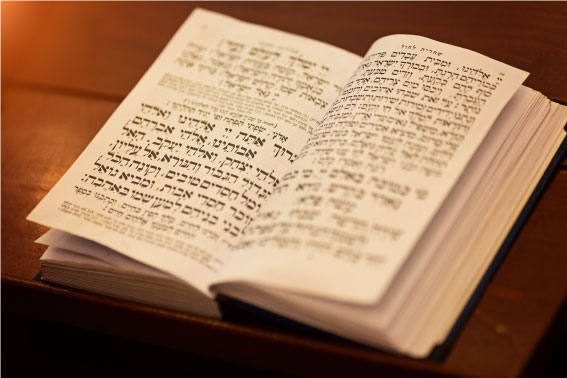Question:
Dear Rabbi Sprung,
I work in the hospital emergency room. I try to find the time to Daven, but I don’t always manage to due to the intense nature of the work. This is especially common in the winter when the amount of time to Daven Mincha is limited. I know that when I am involved in the Mitzva of Pikuach Nefesh I am exempt from Tefila if I cannot Daven, but I wonder if I must Daven Ma’ariv twice in this situation.
Answer:
- As a rule, a doctor who works hospital shifts must find time to Daven and perform the Mitzvos so that he does not neglect them regularly.
- However, when he is working he is exempt from Tefila because “haOsek b’Mitzva Patur Min haMitzva”.
- If his shift began after the start of the Zman Tefila and he was unable to Daven during the shift, he must Daven the next Tefila twice as Tashlumin. This is because he had time to Daven before his shift.
- If he had worked continually throughout the Zman Tefila, he is exempt from Tashlumin. However, it is correct for him to Daven an additional Tefila as a Nedava (and to addsomething to the Tefila).
Full Answer:
“A person involved in one Mitzva is exempt from another” (Sukka 25a). As you implied, this exemption only applies when a person cannot Daven, but if he can make the time to Daven he must do so. This is especially true for a doctor who works consistently throughout the year and, if he is not careful, may end up neglecting a Mitzva regularly (Poskim including haGaon Rav Asher Weiss Shlit”a, citing the Birkei Yosef O.C. 38). It is clear from experience that it is possible for busy doctors to either set up a fixed time or make time during their shifts to Daven.
However, as you pointed out, the work in the emergency room is extremely intense and doctors can be on the move for hours dealing with patients. Commonly, those working in that environment will not be able to find the time to Daven and they would absolutely be considered Oskim b’Mitzva.
Your question regarding Tashlumin is an interesting one. The answer depends on the underlying principle of the exemption of an Osek b’Mitzva.
The Shulchan Aruch delineates the principles of Tefilas Tashlumin (O.C. 108):
If a person erred or was Anus and did not Daven Shacharis, he should Daven Mincha twice; the first as Mincha and the second as Tashlumin… If he erred and did not Daven Mincha, he should Daven Ma’ariv twice; the first as Ma’ariv and the second as Tashlumin… If he willfully did not Daven one of the Tefilos, he cannot Daven Tashlumin even at the subsequent Tefila. If he wants to, he may Daven [the Tefila that he missed] as a Nedava.
In other words, only someone who was in a situation of Ones, such as illness or inebriation (Mishna Berura 2), or someone who erred in thinking that he had already Davened (Biur Halacha s.v. “Ta’ah”) may Daven Tashlumin. The Shulchan Aruch (8) also includes one who thought he would Daven later within the Zman Tefila but subsequently forgot. He cannot be considered a willful transgressor since he had ultimately intended to Daven (Mishna Berura 23).
At any rate, the obligation of Tashlumin only applies to a person who was obligatedto Daven but failed to do so. In this case, if it was a willful transgression he may not Daven Tashlumin, whereas in all other cases, he must Daven the next Tefila twice. However, regarding a person involved in communal matters, the Mishna Berura (93:8) rules that he need not interrupt for Tefila: “He need not Daven Mincha twice as Tashlumin for Shacharis. Since he was exempt at the time of the obligation, min haDin he does not require Tashlumin at all”. (He also states this in 106:3.)
In Sha’ar haTziyun (ad. loc.) he notes that this is subject to a Machlokes Acharonim:
The Shulchan Aruch rules (Y.D. 341:2):
If a person’s relative died on Shabbos, he should eat on Motza’ei Shabbos without making Havdala. He should neither Daven [that night] nor in the morning before the burial. After the burial, he should Daven Shacharis if its Zman has not passed. But he should not Daven Ma’ariv [of the previous night] since its Zman has passed. This is not like the case of a person who forgot to Daven Ma’ariv who must Daven Shacharis twice, since [in this case] he was not obligated to Daven at night.
The Drisha comments:
This would seem to imply that a person who is involved in communal affairs and the like during Zman Tefila, who is exempt from Davening – as the Shulchan Aruch rules in Orach Chaim (93) – if during his involvement the Zman Tefila passed – he also does not need to perform Tashlumin by Davening two Tefilos at the next Zman Tefila. This is because he was exempt from Tefila at the time of his involvement, just like in the case of Avelus. For what difference does it make if a person is exempt due to an unavoidable Avelus or his involvement in a Mitzva? In my opinion, it is a Kal vaChomer – for while he is involved in communal affairs he is simultaneously performing Hashem’s service. How great is the reward for those who perform Hashem’s will!
In other words, the Drisha extends the law of an Onen, who is not required to Daven Tashlumin, to a person involved in performing a Mitzva. He should certainly be exempt since he is occupied in Avodas Hashem.
However, the Taz objects to the Drisha’s conclusion (ibid. 5): “I am bewildered as to whether he said such a thing”. The Taz contends that the fact that a person who did not Daven due to Ones is nevertheless obligated in Tashlumin, demonstrates that not every exemption from Tefila generates an exemption from Tashlumin. He explains that the case of Avelus is different since an Onen is in a situation of P’tur rather than simply Ones. Technically, an Onen is able to Daven, but the Avelus exempts him from doing so. By contrast, an exemption that stems from involvement in a Mitzva “is not called a P’tur in and of itself; rather, it is Ones – for he truly cannot Daven”. This is why he must Daven Tashlumin; unlike an Onen who has an inherent P’tur.
Gedolei haPoskim rule like the Drisha. They refute the Taz’s contention and hold that the determining factor is not a person’s “ability” to Daven, but his obligation, as the Shach explains (Nekudos haKesef ibid.):
A person who is obligated to Daven but cannot due to an Ones must make up this obligation by Davening Tashlumin. This applies to a person who is ill or inebriated or someone who forgot to Daven. A person who is exempt from Tefila is not required Min haDin to Daven Tashlumin. In this case, it is irrelevant if he was physically able to Daven (Onen) or not (Osek b’Mitzva).
On this basis, the Shach (ibid.) and Magen Avraham (93) rule like the Drisha, as do the later Poskim including the Mishna Berura.
The Achronim explain that the Machlokes between the Drisha and Taz depends on whether a person who is Osek b’Mitzva is essentially obligated in the second Mitzva but exemptdue to Ones, or if he is entirely exempt from the second Mitzva (see Kehilos Ya’akov Brachos 15). Evidently, the Drisha, Shach, Magen Avraham, and Mishna Berura hold that the exemption is an outright P’tur rather than just an Ones.
HaGaon Rav Asher Weiss Shlit”a argues that this explanation of the Machlokes does not sit well since there is another Machlokes haPoskim thatshould depend on this question, but clearly does not: If a person who is involved in one Mitzva nevertheless performs the second one, has he fulfilled the second Mitzva? (The practical ramifications are whether he may make a Bracha on the second Mitzva or whether he must repeat it upon finishing the first Mitzva.) The Mishna Berura (Sha’ar haTziyun 475:39) rules that he fulfills his obligation (though he is unsure whether he may make a Bracha).
Presumably, this is because haOsek b’Mitzva is still obligated in the second Mitzva but is considered unable to perform it due to Ones. Thus, if he performs the second Mitzva he fulfills his obligation. However, if the exemption was an outright P’tur how can he fulfill a Mitzva for which he has no obligation?
Given that the Mishna Berura rules like the Drisha, we would have expected him to rule that a person does not fulfill any obligation if he performs the second Mitzva (if the basis of the Drisha’s opinion is that he is Patur from Tefila when he is Osek b’Mitzva). We can only conclude that the Machlokes between the Drisha and the other Poskim is not whether haOsek b’Mitzva is an Ones or a P’tur.
We must note that a doctor is considered Osek b’Mitzva even if his primary intent is to fulfill his professional obligations (including earning his salary) rather than to fulfill the Mitzva. This is because he is involved in an actual Mitzva, not just a Hechsher Mitzva, as explained by the Biur Halacha (38).
At any rate, Halacha dictates that in your situation you would be exempt from Tefila min haDin and would not be required to Daven Tashlumin. However, the Mishna Berura (108:2) rules that even in this situation it is correct for a person to Daven a Tefilas Nedava and addsomething to the Tefila.
Furthermore, according to the Mishna Berura (71:4), if a person only became involved in the Mitzva after the start of Zman Tefila and was able to Daven beforehand but did not, he must Daven Tashlumin since he became obligated in the Tefila. This is a common scenario for doctors working in hospitals where shifts begin, for example, at 7:00, 15:00, and 23:00.















Add comment